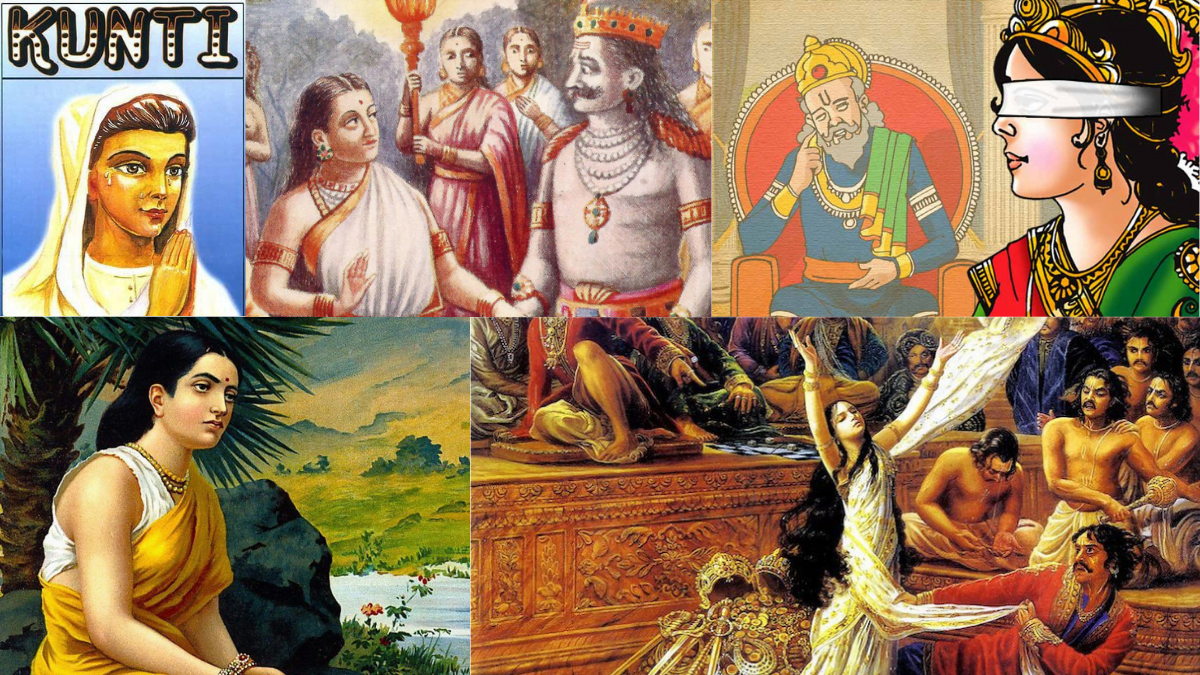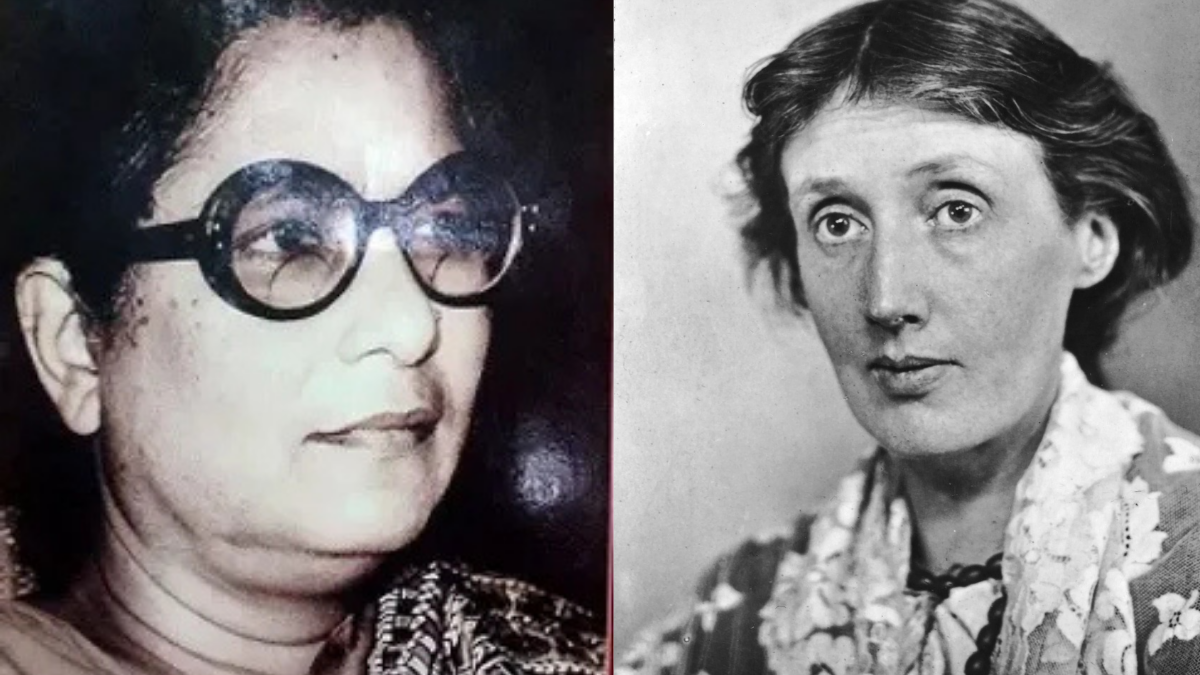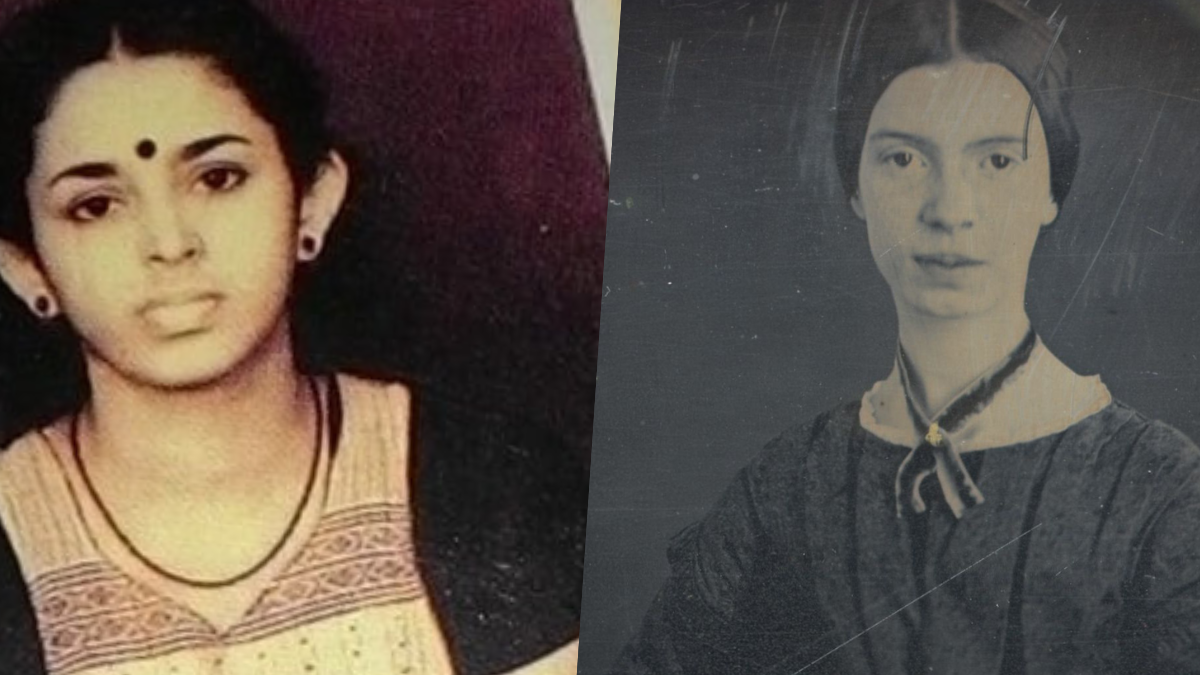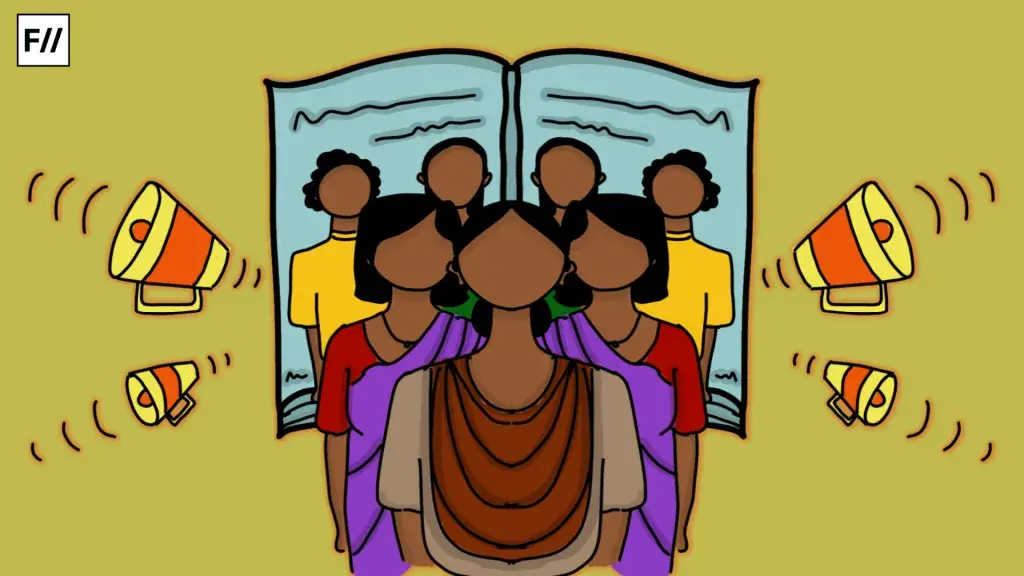Mahabharata and Ramayana are two epics in India. They form Itihasa – a religious story that tells us about what happened in the past. While ‘woman and war’ has been a central plot of these stories, casting Draupadi and Seeta as female protagonists, we can map other supporting female characters in both the stories for their stunning similarities yet intriguing differences.
Kunti and Kausalya
In Mahabharata, Kunti is a mother of Pandava, the valiant hero and Kausalya is a mother of Ram, the hero of Ramayana. Their characters are marked as women with great virtues.
Kunti and Kausalya are part of male–dominant polygamy system. Being principle wives of a ruling king, both of them have privileges than their co-wives. However, Madri and Kaikeyi are certainly more favorite ones to their husbands. While Kausalya shows submissive behavior with respect to Kaikeyi, Kunti is a dominating character who denies sharing Mantra for more than once with Madri to avoid a power struggle. In spite of this difference, Kunti’s ability to raise children of the co-wife as her own, and Kausalya’s ability to pour an unweathering love on all four princes of Ayodhya, set them above ordinary womanhood.
While ‘woman and war’ has been a central plot of these stories, casting Draupadi and Seeta as female protagonists, we can map other supporting female characters in both the stories for their stunning similarities yet intriguing differences.
An exemplary motherhood is a central attribute of the character of Kunti and Kausalya. They have magnificently shaped the characters of their sons. However, upbringing her son single-handedly accredits heroism to Kunti’s motherhood. It distinguishes a character of Kunti from that of Kausalya. Kunti and Kausalya have encouraged their sons to follow the path of Dharma even though it is tough. Both these women stand out for their patience and forbearance while facing ups, twists and turns in the life of their sons. They are an epitome of an affectionate yet assertive motherhood.
Satyavati and Kaikeyi
Satyavati and Kaikeyi are powerful female characters who, through their ambitions, have brought a significant turn in the course of Mahabharata and Ramayana respectively. Both of them are grossly viewed as ‘horrible women’ whose characters have largely remained untouched in society. However, their actions and decisions are so strong that they leave their impact on the entire course of the epic.
Satyavati and Kaikeyi are dutiful wives, yet not subdued to their husbands. They are kind of a character that can make an impact that empowers them to have a control on decisions of their husbands. A fact of being younger in order in the system of polygamy keeps them away from enjoying a status of Queen Mother in natural order. However, their characters are so powerful that they can put forward their own conditions that help them to reach what otherwise is dependent on fate.
Shantanu is so mesmerised with the beauty of Satyavati that he cannot live without her. This forces Devavrata to agree to prenuptial conditions put forward by the father of Satyavati. Those conditions allow Satyavati to become a Queen Mother, although she is not the first wife of Shantanu, whose progeny would rule as a birthright. Kaikeyi proves that she is a worthy wife saving the life of her husband at the cost of her own life in one of the battles. This sacrifice is worth being rewarded and that reward makes Kaikeyi’s way to become a Queen Mother although she is not first wife.
These two females make use of the opportunity that comes to them due to their ability and change the normal course of the story.
Satyavati and Kaikeyi are caring mothers who do not hesitate to take bold steps for ensuring a bright future for their children, in spite of public criticism. Their love for their children is so strong that they can overcome all the hatred in the world. Unfortunately, Satyavati’s children are unable to rule over the kingdom for a long period of time and one can say that they have hardly contributed towards taking the kingdom to newer heights. This clearly shows that they have not done justice to the opportunities provided by their mothers. Kaikeyi’s son Bharat never agrees to a coronation and only acts in the capacity of a regent of the kingdom. This also shows that a dream of Kaikeyi to see her son as a crowned king does not come true.
Also read: Raw And Relatable: 5 Female Characters Who Transformed Cinema
While making to their out-of-the-way status, Satyavati and Kaikeyi happen to ignore the birthright of others. Queen Mother status of Satyavati and Kaikeyi takes away the birthright of Bheeshma and Ram to coronation. Both Bheeshma and Ram are great warriors and followers of Dharma who deserve the coronation not only by their birthright but also by the merits.
Satyavati although refrains Bheeshma from enjoying his birth right; she retains his authority and power in the kingdom. In Satyavati’s presence, Bheeshma becomes a true power behind the throne. Whereas, Kaikeyi not only takes away the birthright of Ram but also ensures that he is restrained from all the authority and royal pleasures for a long time so that her son can get sufficient time to establish himself.
This differentiates Satyavati from Kaikeyi. Kaikeyi is seen as a horrible woman to whom nobody has ever dared to offer a magic wand of redemption. However, Satyavati’s respectful behavior towards Bheeshma gives her redemption and therefore, she is acclaimed with a status of not only the Queen Mother but also successful ruler of the Kuru dynasty.
Gandhari and Mandodari are similar kinds of tragic characters who are righteous and pure in nature. Gandhari and Mandodari both are famous for their self-restraint and sacrifice observed during their entire life. Both of them depict strong female characters that are not a shadow of their respective husbands.
Gandhari and Mandodari
Gandhari and Mandodari are similar kinds of tragic characters who are righteous and pure in nature. Gandhari and Mandodari both are famous for their self-restraint and sacrifice observed during their entire life. Both of them depict strong female characters that are not a shadow of their respective husbands. They share a common sorrow that their righteous advice is never heeded by their husbands. Both of them are dutiful and faithful wives.
Mandodari has always tried her best to show the right path to her husband to overcome his self-esteem, to care for his subjects and to return Seeta to Ram with due honor. Similarly, Gandhari has always tried her best to direct her husband to be impartial, to fulfill his duty as a king and to give fair treatment to Pandavas. Unfortunately, their respective husbands have made them suffer for the entire lives due to their greed of power and strong sense of revenge.
A judgement of Gandhari and Mandodari about their kinsmen’s enemy is shrewd and correct. Their ability to recognise strengths of their kinsmen’s enemies shows nobility as well as equanimity of their character. Both their sons have followed the wrong path in their life which is influenced by their respective fathers. This shows male dominance in the family and the fact that a mother has a subordinate role when it comes about shaping the future of her children; in spite of that, she is the first one to be blamed for spoiling her children.
Both of them have to suffer a sorrow of losing their sons who have followed the wrong path and have stood against the good. The irony is that their respective sons are great warriors and as a warrior, it is their duty to protect the good, but they lead the path of destruction. Gandhari and Mandodari are also compassionate about the female protagonists respectively Draupadi and Seeta who are humiliated by their respective sons and husband. They have raised their voice against the wrong done by their kinsmen, although their voices are closed up within the walls of their royal palace.
There is an intriguing difference between these mothers of villains of the story—Mandodari is considered as one of five virgins for her ability to redeem and rejuvenate; but Gandhari who continues to rebel and reconcile has always been convicted by the society.
Also read: Does Simply Having Female Protagonists Mean That A Film Is Feminist?
Although Ramayana and Mahabharata certainly mark two different époques of Indian history, thoughts and actions of female characters of two great epics turn out to be the lighthouse erected in the great sea of time. The contemporary women can always get a direction from them, in their expedition to a shore of women’s empowerment.
Shruti Hajirnis Gupte is a chartered accountant by profession & is pursuing a career in the corporate world. She is an author of ‘Mahabharatee – Five women who held court before the war’. Her mythology fiction got listed in ‘Top 100 Debut Novel’. She is a disciple of Dr. Sucheta Chapekar. She is Bharatnatyam dancer by passion, a lover of literature and a connoisseur of French & Sanskrit. Shruti has completed her first book while taking care of her cute, little toddler.




